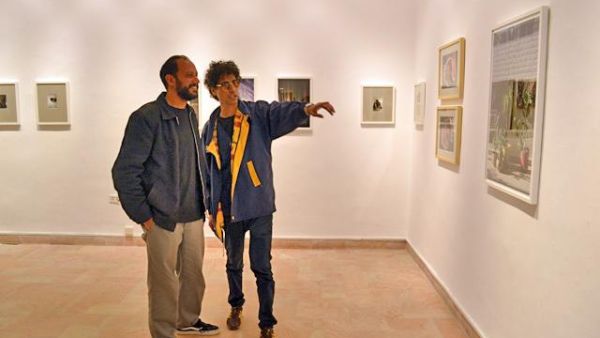Jordanian photographer Mohammed Zakaria’s images deconstruct the notion of “home” in an attempt to grasp its philosophical connotations beyond its prevailing function as a means of housing.
Taking part in the 8th Image Festival Amman, Zakaria displayed his personal journey of self discovery to the public. The photographer’s images of basic domestic objects also currently hang on the walls of the Cervantes Institute.
Zakaria started his career as a computer engineer but after three years realised that the corporate world was not where he belonged, he said. Soon after, he carried on with casual skateboarding photography and embraced creative practice as a tool to serve his philosophical curiosities.
"In my work I take the usual interpretation of solitude to another level as I view it from an angle completely contrary to alienation," Zakaria has said in a recent interview with The Jordan Times.
With no intention to offer something new to the viewer; Zakaria said he "strived to find interest where interest does not belong."
“I was not trying to impose something new; these things in their simplicity are beautiful, very basic stuff that we usually don’t pay attention to,” Zakaria said.
The photographer added that he sought to re-establish a relationship with his home, without having any preconceived ideas as to what a home can be.
“What was important was how the work came about. The concept was vague in the beginning with no solid understanding. What I tried to do was to approach this journey the same way I would take the camera and explore a new city,” Zakaria said. “So I tried to do the same inside the house; carry the camera and catch anything that would stop me.”
Zakaria said that individuals usually recognise themselves in relation to someone or something else, and that such a realisation of one’s true self can be achieved through the idea of home, which is a reflection of our identity.
“Solitude is very important. If you can’t bear to sit with yourself; if you can't befriend yourself, this means you’re a boring person.”
“The exhibition communicates to the viewers by the sum of its parts — the whole,” Zakaria said, adding that his interest in collecting visuals was a means to get to know himself more.
Zakaria also said that, if he can get in touch with his identity in that sense, so can a lot of people who can relate to this way of exploring oneself.
“There is a difference between appearing the way you want people to think of you, and your true identity, which appears in how you behave when you are completely indifferent,” the photographer said.
This article has been adapted from its original source.








